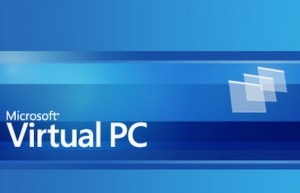 After constantly being bombarded by malicious programs and viruses, and putting up with hard to find system preferences and an operating system so complicated they need to watch videos hawked on late-night TV in order to get full use out of it, they happen by the Apple Store in the Mall of America and gaze at the shiny aluminum G5. It’s Apple’s new flagship computer. Some benchmarks (no, you’re not getting me into that argument again) put it faster than many PCs. It can run burn rubber in Photoshop, gain enough velocity to escape gravity’s pull while running Final Cut Pro 4 and it can even do your dishes.
After constantly being bombarded by malicious programs and viruses, and putting up with hard to find system preferences and an operating system so complicated they need to watch videos hawked on late-night TV in order to get full use out of it, they happen by the Apple Store in the Mall of America and gaze at the shiny aluminum G5. It’s Apple’s new flagship computer. Some benchmarks (no, you’re not getting me into that argument again) put it faster than many PCs. It can run burn rubber in Photoshop, gain enough velocity to escape gravity’s pull while running Final Cut Pro 4 and it can even do your dishes.
OK, you got me there. It can’t do dishes. Maybe the G6 will do that.
But when it comes to household chores, the other thing this sleek and nearly silent hot rod won’t do is Windows.
It was leaked earlier this week, and confirmed by Microsoft, that Apple’s new G5 can’t run Virtual PC.
You might ask: How is this a problem Steve? Well, for me, it’s not. For one thing, I probably won’t be able to afford a new G5 until the G6 is being shipped. For another, I use VPC for some tasks (such as checking Web pages for how they render on PCs), but can’t say that I recall the last time I actually fired the program up.
But for those coming from the Windows side, and those who need to be completely compatible with their poorly-planned work networks, it could be an issue. After all, Apple’s site still lists VPC as one of its last pitches to potential PC customers over in its Switch section. Wait, I could have sworn Apple had Virtual PC in there somewhere? It seems to have been removed from both the "Why switch" and "Questions about switching" pages. The point is, I had to work with a bunch of Access databases for work once and could not work with on my Mac without Virtual PC. I also can’t connect to my particular VPN client without it, either.
So as we get ready for Cupertino to launch its latest bid to take over the computer world with the G5, the question is, who dropped the ball? Was it Apple? Was it Microsoft? Was it IBM? From reading the news accounts, it seems that it may have been Apple or IBM’s fault for not building some features into the new chip.
You’ll have to excuse me here. I’m on a lower level of geekdom than most of the folks over at Ars Technica or The Register, where they have writers and columnists with much more knowledge about chips and pipelines and the such. A barometer of my knowledge: Being part Native American, I was appalled and nearly offended when I first heard that the problem was that G5s don’t support "pseudo little-endian mode." But I calmed down after I did a quick Google and found that little-endian mode was in fact a real feature of the PowerPC chip, in which "addresses are swizzled when they are used to access memory. … The resulting addresses are used to make memory references to a big-endian memory system." The big-endian, I’m assuming, is the big, bad PC. I’m sure you’ll e-mail me if I’m wrong.
What would Microsoft get out of fixing the problem quickly? Some VPC sales — and more licenses for Windows. But I can tell you that Big Brother MS is not in all of this to sell G5s. No, the responsibility for this problem has to fall squarely on Apple’s shoulders, even though MS has said that it will eventually rewrite the program (no word on when it might come out, however). In the meantime, Apple loses a selling point, albeit a small one, for hooking dark-side users over to the Mac. There will inevitably be those who switch and buy a G4 or an iMac so they can run VPC and then complain about its speed. Virtual PC is barely usable on even the latest machines.
Which means they’ll more than likely stay on their PC and face down the latest Blaster worm or SoBig virus. Which reminds me: I have gotten some e-mails this past week (as has the columnist I quoted) about the column I wrote on Macs and viruses last week. In it, I reminded us all that we are not immune from viruses and that most virus-writers are only targeting the biggest market — Windows.
Shrewd and knowledgeable readers pointed out that the UNIX system Mac OS X is built on is much more locked down than Windows, therefore making it harder for any malicious code to do anything. To those readers: I was wrong, and you are right. OS X is fundamentally more secure.
Which makes it even more amazing that any of us would want to run Virtual PC on our Macs, anyway.


No comments
Be the first one to leave a comment.